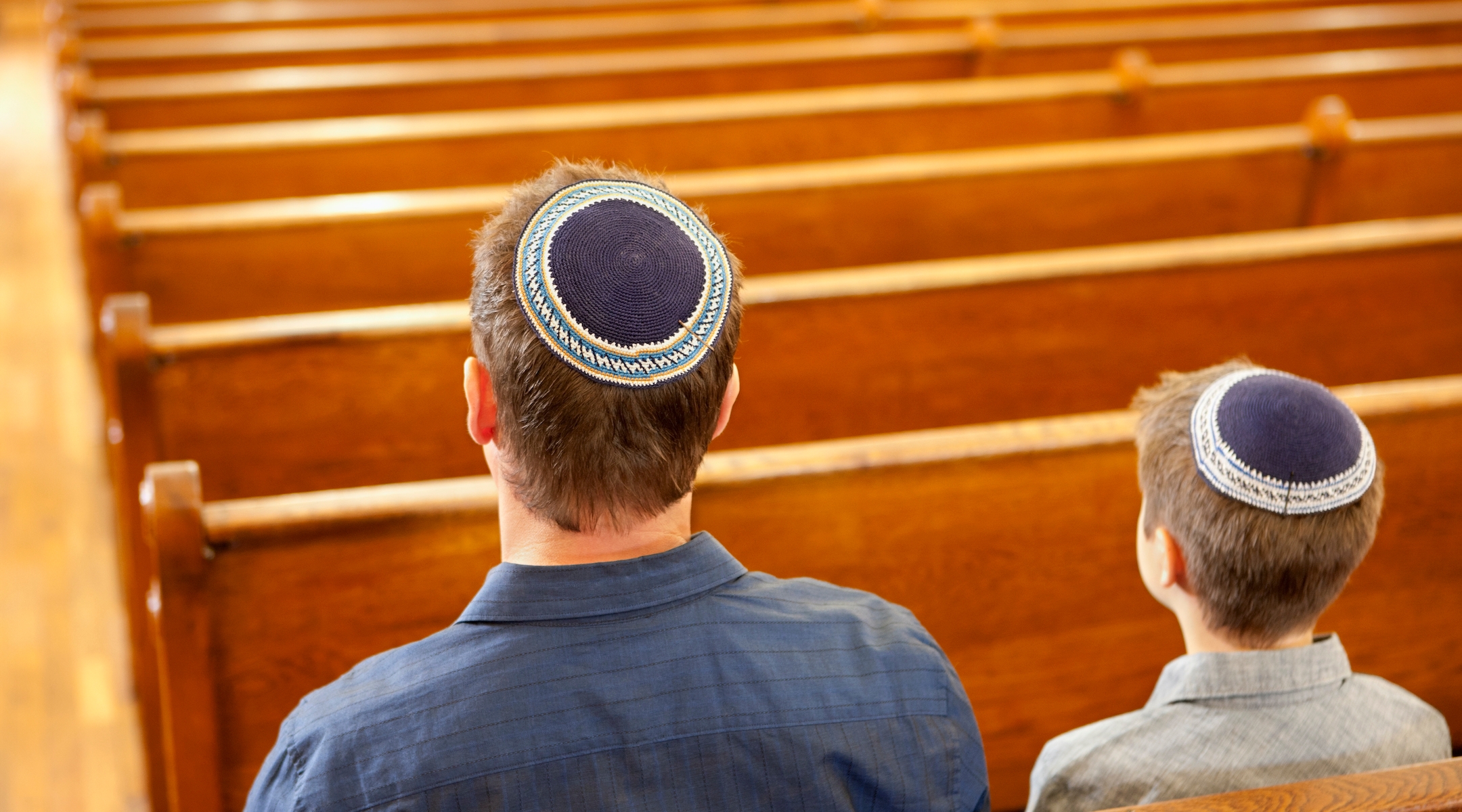This story originally ran in the Washington Post.
As Jews around the world prepared for Rosh Hashanah, the Jewish new year, President Trump wished his “Jewish brothers and sisters” a happy holiday.
In 2019, he extended a version of the same greeting to “those observing Rosh Hashanah.” In 2018, it was “Jewish people.” In 2017, it was “Jewish families.”
With one exception, a word was missing from the texts of all four annual greetings: “Jews.”
The syntax speaks to a strange phenomenon: People often seem to be afraid of using the word “Jew,” a word that, simply, describes the people they’re talking about.
Discomfort with the word “Jew” exists across the political spectrum. In 2015, a Democratic official chastised Sen. Rand Paul, the Republican from Kentucky, for a campaign sign he advertised reading “Jew for Rand.” Recent articles about Justice Ruth Bader Ginsburg on CNN, USA Today and elsewhere described her as “the first Jewish person” to lie in state. (Notably, Jewish newspapers felt fine calling Ginsburg the “first Jew” to be given the honor.)
Why such aversion? “Jew” is not a slur. It is a descriptor most Jews will use without a moment’s thought. It’s just who we are. Derived from the Hebrew word “Yehuda,” the name of the foremost of the 12 tribes of Ancient Israel, it’s a cognate of the Hebrew word “yehudi,” which means Jew or Jewish.
Of course, for as long as anti-Semitism has existed, people have used the word “Jew” as a pejorative. The most famous example is Nazi Germany, which made Jews wear yellow stars bearing the word “Jude,” German for “Jew.” William Shakespeare, Charles Dickens and other writers have called characters “Jews” — without meaning it as a compliment. As a verb, rather than a noun, it’s more obviously fraught: The phrase “to Jew down” unfortunately persists in some corners as a bigoted synonym for aggressively bargaining or cheating, based on the anti-Semitic stereotype that Jews are cheap.
Plenty of people, particularly non-Jews, avoid the word “Jew” for that reason, says Sarah Bunin Benor, who researches American Jewish language. “Many people assume that it’s a slur because they know that Jews are historically a stigmatized group, so they’re concerned about using it because they don’t want to sound offensive,” she said.
Jews were also once reticent to use the word “Jew” in describing themselves. Early generations of American Jews, sensitive to how non-Jews could think the word was a slur, opted instead for “Hebrew” or “Israelite” when they named their organizations. Those words harked back to a biblical heritage Christians could appreciate, says Eric Goldstein, a historian of American Jews.
That’s why the country’s first association of Reform synagogues was initially called the Union of American Hebrew Congregations and why Reform Rabbi Isaac Mayer Wise founded the American Israelite, the oldest English-language Jewish weekly newspaper in America (which is still running). The Hebrew Immigrant Aid Society, established in 1881, helped waves of Eastern European Jews settle in the United States. The American government used the word “Hebrew” as a way to identify Jewish soldiers as late as the 1940s.
The dynamic shifted after the Holocaust, when, Goldstein says, Jews worried “Hebrew” sounded too much like a racial category (and “Israelite” felt antiquated). Many postwar Jews were eager to assimilate into White America, and the 1955 book “Protestant, Catholic, Jew,” by Jewish author Will Herberg, argued that Jews should be seen as another religious group with equal claim to America, rather than as a different race or ethnicity.
Still, the word “Jew” does feel different from, and somehow more powerful than, “Jewish.” “Jewish” is an adjective, one of many that could describe someone who may also be American, tall, athletic or anything else. “Jew” is not that. It’s an identity, something that speaks to the core of a person.
At the Jewish day school I attended growing up, my teachers used to ask my classmates and me whether we were “Jewish Americans” or “American Jews.” If someone said they were an “American Jew,” it implied their Judaism was most important. “American,” in this case, was the modifier, while “Jew” was who they really were.
Of course, like other words that describe a minority, “Jew” can still be used offensively today if it’s intended to denigrate someone or to advance anti-Jewish stereotypes. A good tell, said Benor, is if the word “Jew,” a noun, is used as an adjective or a verb. Anti-Semites, for example, may refer to a “Jew banker” or use the expression “Jew down.”
But “Jewish” can be used in anti-Semitic ways pretty easily, as well. Thomas Lopez-Pierre, an unsuccessful candidate for New York City Council, told me in 2017 that a cabal of “greedy Jewish landlords” was working with Israel to ethnically cleanse Harlem of people of color and that their misdeeds were being covered up by the Jewish media. In case it wasn’t clear, that’s a whole smorgasbord of classic anti-Semitic stereotypes.
If we avoid saying “Jew” because anti-Semites might use it, we’re giving them veto power over a word that has defined us, in one language after another, for millennia. In fact, experts say, anti-Semites need not use the words “Jew” or “Jewish” at all to attack Jews. People who study hatred of Jews are now keeping an eye on QAnon, the growing pro-Trump conspiracy theory accusing powerful globalist elites of kidnapping children, abusing them and harvesting their blood.
Few QAnon posts include the word “Jew,” but the theory is based on age-old anti-Semitic tropes that rich Jews control the world and kill non-Jewish kids for their blood, a canard known as the “blood libel.” Putting all of those ideas together means that “even without mentioning Jews, you can definitely get that kind of implicit anti-Semitic message,” Magda Teter, who wrote a book about the blood libel, told me.
Anti-Semitism doesn’t hinge on using the word “Jew.” And the word “Jew” has neither a positive nor a negative connotation. As long as you’re not saying anything hateful, feel free to call me a Jew.
If you don’t believe me, take it from Ruth Bader Ginsburg. In a 1996 essay, she wrote, “I am a judge born, raised, and proud of being a Jew.”
JTA has documented Jewish history in real-time for over a century. Keep our journalism strong by joining us in supporting independent, award-winning reporting.






